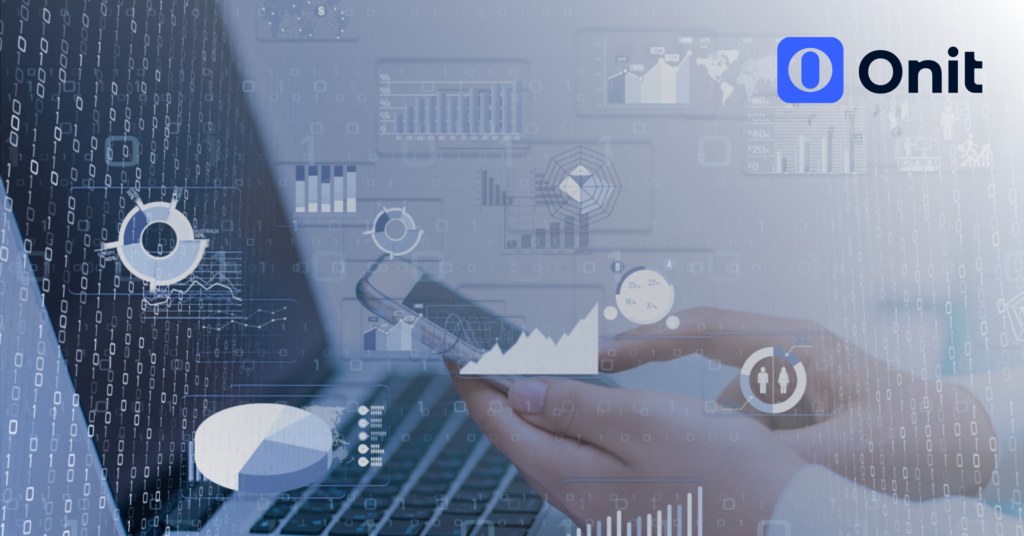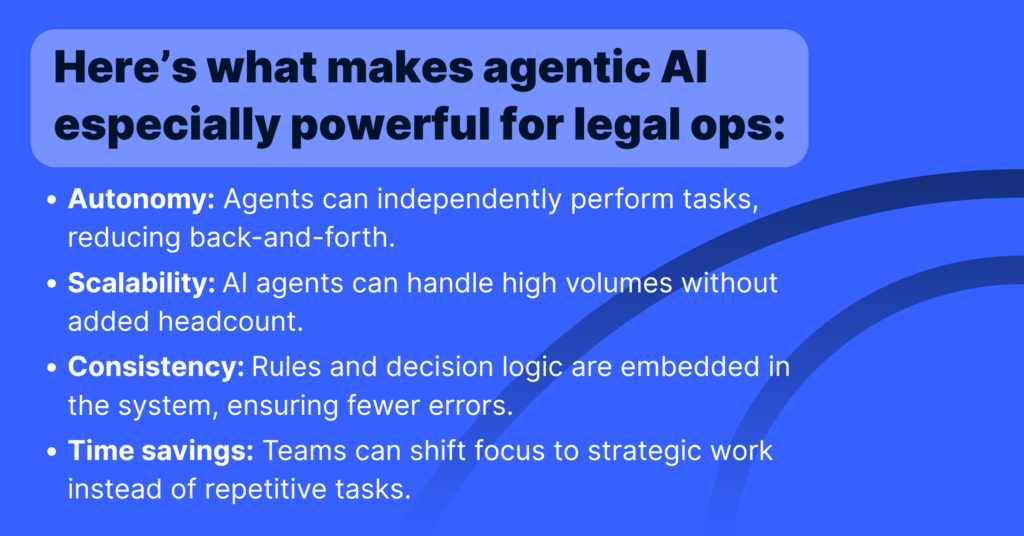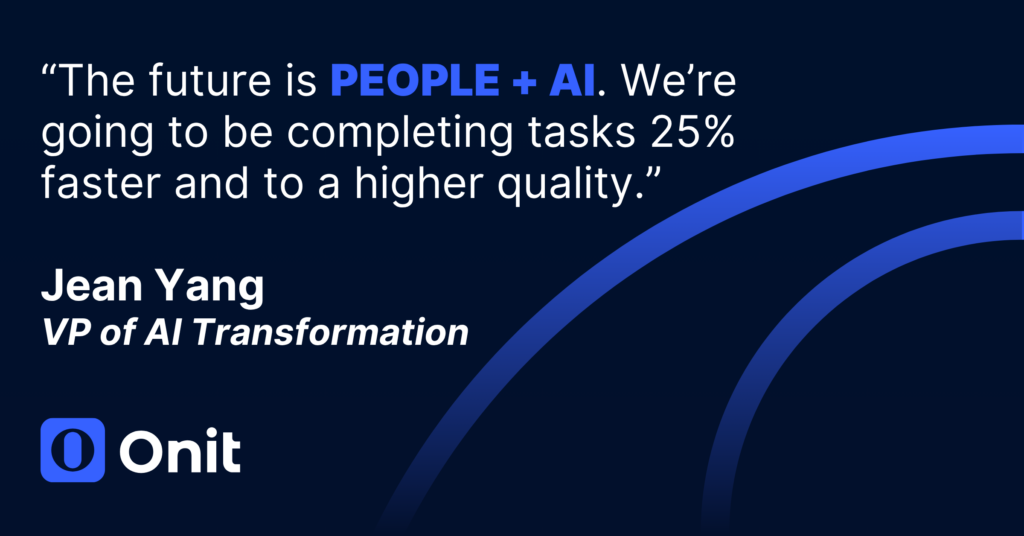The legal tech world has no shortage of buzzwords, but every once in a while, one sticks for good reason. Agentic AI is one of them. Agentic AI in legal operations is stepping into the spotlight as legal departments continue to look for ways to streamline operations, manage risk, and do more with less. Unlike traditional AI tools that wait for instructions, agentic AI can make decisions, take action, and complete complex legal workflows autonomously.
Let’s break down what agentic AI is, how it works, and why it’s becoming an essential part of legal operations strategy.
What Is Agentic AI?
Agentic AI refers to a new class of AI tools designed to plan, execute, and adapt multi-step tasks on their own, with minimal human input. These “AI agents” don’t just answer prompts — they take goals and run with them.
For example, instead of asking an AI to redline a single clause, a legal operations team could give an agentic AI a broader task: review this contract, identify risky clauses, suggest edits, and generate a final version based on company policy. And it would do it — autonomously.
The key difference between agentic AI and standard generative AI is agency: the ability to make decisions, use tools, and iterate toward a goal.

How Agentic AI Powers Legal Workflow Automation
In legal operations, time is money — and repetitive tasks are the bottlenecks. Agentic AI in legal operations can help automate end-to-end legal processes such as:
- Reviewing and redlining contracts based on predefined rules
- Extracting data from legal documents and routing it to the right systems
- Managing intake and triage for legal service requests
- Drafting reports, summaries, and status updates across departments
By enabling AI agents to interact with tools (like databases, document editors, and workflows), Agentic AI in legal operations creates a smarter, self-sufficient layer of automation that reduces manual effort while increasing speed and consistency.
How Does Agentic AI Work: A Brief Explanation
At its core, Agentic AI blends a powerful language model with access to tools, data, and logic, giving it the ability to not just respond but act.
Think of it this way: traditional AI tools wait for you to tell them what to do, step-by-step. Agentic AI starts with a goal and figures out how to get there. It doesn’t just generate an answer, it drafts the document, finds the data, reviews the terms, and refines the output until the task is done.
These tools are often built by connecting a language model with software tools, business rules, and datasets the designated agent can access and use. Depending on the complexity of the workflow, this setup can be customized to suit specific tasks — whether that’s redlining contracts, generating reports, or routing approvals.
Benefits of Legal AI Automation for In-House Teams and Law Firms
Some teams opt for pre-configured setups with broader capabilities, while others tailor their systems for more focused use cases.
The choice comes down to speed vs. precision — some teams need flexibility, while others prioritize control and simplicity.

The result? Faster legal service delivery, better alignment with business goals, and a more modern, resilient legal ops function. That’s exactly the kind of impact Agentic AI in legal operations is designed to deliver.
What to Know Before Implementing Agentic AI in Legal Operations
Of course, agentic AI isn’t magic. There are tradeoffs:
- Cost and complexity: Building agentic systems — especially at enterprise scale — can require time, money, and technical expertise.
- Testing and trust: Because agentic systems can produce a range of outputs, validating their performance and accuracy takes careful design.
- Overengineering risk: Sometimes a simple rule-based automation is enough. Not every task requires a multi-agent system.
The key is finding use cases where autonomy pays off and implementing right-sized solutions.
Why Agentic AI Is the Future of Legal Tech
The shift toward agentic AI reflects a broader movement in legal operations: from reactive support to proactive enablement. Legal teams are no longer just processing work — they’re driving innovation, shaping policy, and delivering business value.

Agentic AI isn’t just another tool in the tech stack. It’s a teammate.
And in some cases, it’s doing the work 70x to 270x faster. In our recent Better Call GPT research from the Onit AI Center of Excellence, we found that AI-powered contract review using Large Language Models (LLMs) can dramatically outperform human reviewers. This isn’t just about speed — it’s about freeing legal teams to shift their focus from manual review to high-impact strategic work. When AI agents handle the grunt work, legal becomes a driver of business velocity.
How Onit Is Supporting Legal AI Automation
At Onit, we’re focused on helping legal teams evolve through automation, innovation, and intelligence. Whether you’re exploring your first AI use case or scaling your legal ops ecosystem, our platform is built to support modern workflows — including emerging agentic AI capabilities.
Want to see how legal AI automation can transform your team’s impact?
Explore our solutions to discover how Onit is helping legal departments streamline workflows, accelerate service delivery, and embrace the future of legal tech with confidence.
Ready to Take the Next Step?
If your team is ready to move from experimentation to execution — and you want a smarter, faster way to operate — we’re here to help. Book a demo and see agentic AI in action.






